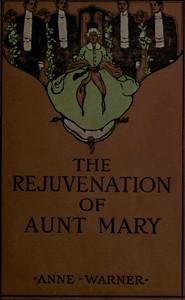|
|
Read this ebook for free! No credit card needed, absolutely nothing to pay.Words: 62144 in 15 pages
This is an ebook sharing website. You can read the uploaded ebooks for free here. No credit cards needed, nothing to pay. If you want to own a digital copy of the ebook, or want to read offline with your favorite ebook-reader, then you can choose to buy and download the ebook.

: Plum Pudding: Of Divers Ingredients Discreetly Blended & Seasoned by Morley Christopher - Essays Bibliomania@FreeBooksTue 06 Jun, 2023 PLUM PUDDING
THE PERFECT READER On Christmas Eve, while the Perfect Reader sits in his armchair immersed in a book--so absorbed that he has let the fire go out--I propose to slip gently down the chimney and leave this tribute in his stocking. It is not a personal tribute. I speak, on behalf of the whole fraternity of writers, this word of gratitude--and envy. No one who has ever done any writing, or has any ambition toward doing so, can ever be a Perfect Reader. Such a one is not disinterested. He reads, inevitably, in a professional spirit. He does not surrender himself with complete willingness of enjoyment. He reads "to see how the other fellow does it"; to note the turn of a phrase, the cadence of a paragraph; carrying on a constant subconscious comparison with his own work. He broods constantly as to whether he himself, in some happy conjuncture of quick mind and environing silence and the sudden perfect impulse, might have written something like that. He is confessedly selfish. On every page he is aware of his own mind running with him, tingling him with needle-pricks of conscience for the golden chapters he has never written. And so his reading is, in a way, the perfection of exquisite misery--and his writing also. When he writes, he yearns to be reading; when he reads, he yearns to be writing. The enjoyment of literature is a personal communion; it cannot be outwardly instilled. The utmost the critic can do is read the marriage service over the reader and the book. The union is consummated, if at all, in secret. But now and then there comes up the aisle a new Perfect Reader, and all the ghosts of literature wait for him, starry-eyed, by the altar. And as long as there are Perfect Readers, who read with passion, with glory, and then speed to tell their friends, there will always be, ever and anon, a Perfect Writer. And so, dear Perfect Reader, a Merry Christmas to you and a New Year of books worthy your devotion! When you revive from that book that holds you in spell, and find this little note on the cold hearth, I hope you may be pleased.
THE AUTOGENESIS OF A POET The mind trudges patiently behind the senses. Day by day a thousand oddities and charms outline themselves tenderly upon consciousness, but it may be long before understanding comes with brush and colour to fill in the tracery. One learns nothing until he rediscovers it for himself. Every now and then, in reading, I have come across something which has given me the wild surmise of pioneering mingled with the faint magic of familiarity--for instance, some of the famous dicta of Wordsworth and Coleridge and Shelley about poetry. I realized, then, that a teacher had told me these things in my freshman year at college--fifteen years ago. I jotted them down at that time, but they were mere catchwords. It had taken me fifteen years of vigorous living to overhaul those catchwords and fill them with a meaning of my own. The two teachers who first gave me some suspicion of what lies in the kingdom of poetry--who gave "so sweet a prospect into the way as will entice any man to enter into it"--are both dead. May I mention their names?--Francis B. Gummere and Albert Elmer Hancock, both of Haverford College. I cannot thank them as, now, I would like to. For I am approaching a stage where I can somewhat understand and relish the things of which they spoke. And I wonder afresh at the patience and charity of those who go on lecturing, unabated in zest, to boys of whom one in ten may perhaps, fifteen years later, begin to grasp their message. In so far as any formal or systematic discipline of thought was concerned, I think I may say my education was a complete failure. For this I had only my own smattering and desultory habit of mind to blame and also a vivid troublesome sense of the beauty of it all. The charm of the prismatic fringe round the edges made juggling with the lens too tempting, and a clear persistent focus was never attained. Considered by my mates as the pattern of a diligent scholar, I was in reality as idle as the idlest of them, which is saying much; though I confess that my dilettantism was not wholly disreputable. My mind excellently exhibited the Heraclitean doctrine: a constant flux of information passed through it, but nothing remained. Indeed, my senses were so continually crammed with new enchanting impressions, and every field of knowledge seemed so alluring, it was not strange I made little progress in any. Perhaps it was unfortunate that both in America and in England I found myself in a college atmosphere of extraordinary pictorial charm. The Arcadian loveliness of the Haverford campus and the comfortable simplicity of its routine; and then the hypnotizing beauty and curiosity and subtle flavour of Oxford life --these were aptly devised for the exercise of the imagination, which is often a gracious phrase for loafing. But these surroundings were too richly entertaining, and I was too green and soft and humorous to permit any rational continuous plan of study. Like the young man to whom Coleridge addressed a poem of rebuke, I was abandoned, a greater part of the time, to "an Indolent and Causeless Melancholy"; or to its partner, an excessive and not always tasteful mirth. I spent hours upon hours, with little profit, in libraries, flitting aimlessly from book to book. With something between terror and hunger I contemplated the opposite sex. In short, I was discreditable and harmless and unlovely as the young Yahoo can be. It fills me with amazement to think that my preceptors must have seen, in that ill-conditioned creature, some shadow of human semblance, or how could they have been so uniformly kind? Free books android app tbrJar TBR JAR Read Free books online gutenberg More posts by @FreeBooks
: The Rejuvenation of Aunt Mary by Warner Anne - New York (N.Y.) Fiction; Humorous stories; Man-woman relationships Fiction; Families Fiction; Older people Fiction@FreeBooksTue 06 Jun, 2023

: Ishmael; Or In the Depths by Southworth Emma Dorothy Eliza Nevitte - Fiction@FreeBooksTue 06 Jun, 2023
|
Terms of Use Stock Market News! © gutenberg.org.in2025 All Rights reserved.






